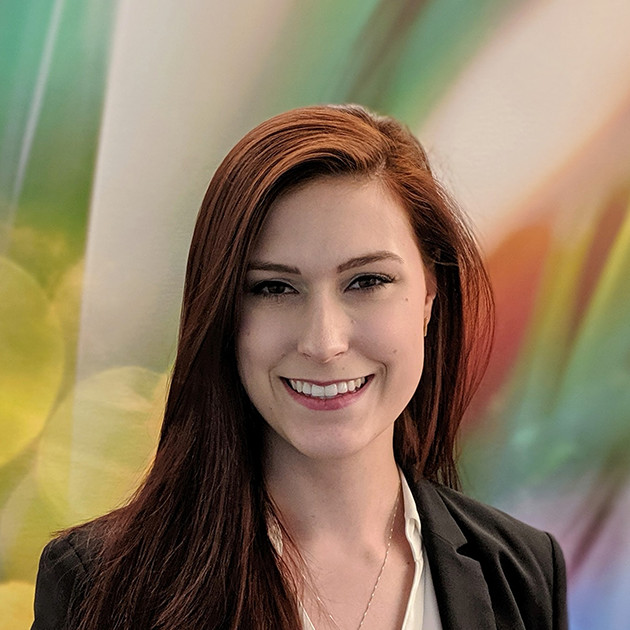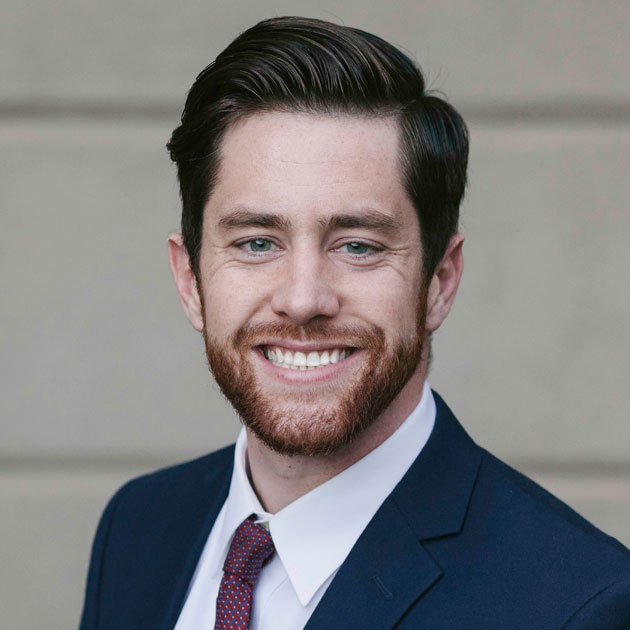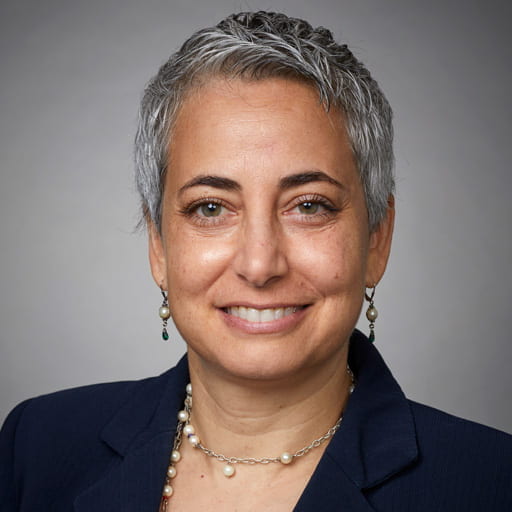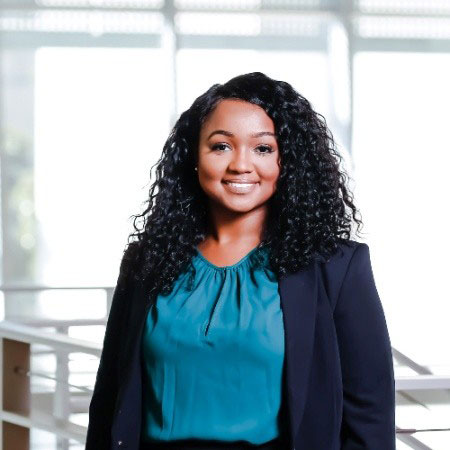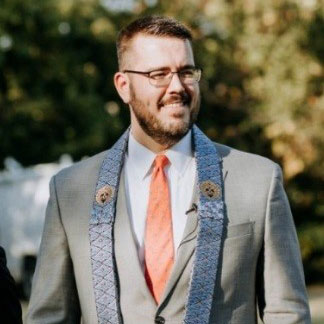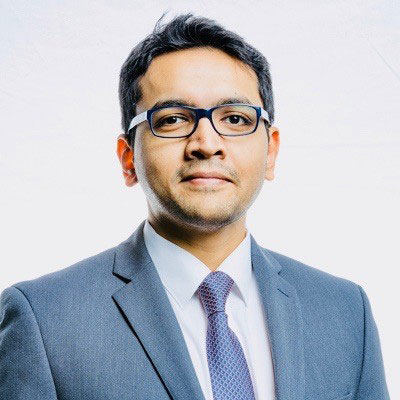
In the episode, Tarun Tripathy, MBA’18, a consultant at Deloitte, joins host Lisa Shatz, assistant dean of MBA Programs at the Naveen Jindal School of Management. They discuss what brought him to his decision to enroll in an MBA program, why he chose UT Dallas and the highlights and challenges he experienced as an international student and what he learned from them.
Transcript
[Jimmie] This is yet another MBA G.O.A.T., a podcast featuring conversations with a greatest of all time MBA alumni from the Naveen Jindal School of Management at the University of Texas at Dallas. We are here to celebrate the outcomes of graduate management education and to identify remarkable examples of how the MBA program here at the Jindal School has transformed the lives for our alumni. Now, here’s Lisa Shatz, Assistant Dean for the Jindal School’s MBA program. Take it away, Lisa.
[Lisa] Hey you guys, welcome back to another greatest of all time MBA podcast. I’m so excited because Tarun Tripathy is here with us today and Tarun is a relatively recent grad, a couple years ago and he is currently a consultant with Deloitte, which just happens to be the firm that I went to when I got out of my MBA program. So I’m glad to have him on. Let’s hear a little bit about how Deloitte has changed over the last, well let’s call it 10 years – it’s probably more like 20, but I’m interested to hear how things are going! So how are you Tarun?
[Tarun] Hey Lisa, thank you so much for having me. It’s a pleasure to be back here. It’s been going good I’ve been with Deloitte as a graduate in about 2018. And so, I’ve been employed for a couple of years now, it’s been going great. Consulting was not something that I had any understanding of before coming to UTD and, but UTD gave me kind of the springboard to kind of jump into consulting so it’s been, it’s been fun.
[Lisa] I have great memories of Deloitte and one of the things I really loved about it is when I went in, it, it just seemed like I, we had so many different types of projects at that, you know, kind of entry point where they’re still trying to figure out what they want you to do, but also what you want to do. So have you had an opportunity to do a lot of different projects with a lot of different types of clients?
[Tarun] Yes, I mean that’s kind of what happens in consulting type you get to experience different industries, different sectors, different clients me, I’m on the same pathway. Although I did have a very big client fortune 50 client, right, you know, on day one on the job and I’ve just kind of been catering to them it was it was a long engagement with them as well. So it’s been interesting because I’ve had to do a lot of things that I previously wasn’t doing. I had to kind of climb the learning curve and get into industries and sectors, and kind of technology domains, artificial intelligence, machine learning that I can, I can have a long conversation on it just because of all the projects I’ve been doing in that space. So, yes it’s been really interesting and I’m trying to learn more and grow more in this industry.
[Lisa] You’re certainly on the cutting edge of all the new technologies, so that’s pretty exciting. But let’s go back a little bit to you know you talked about how you really didn’t know anything about consulting coming in and if I remember right, your background was pretty entrepreneurial back in India. So what made you – number 1 decide on UT Dallas MBA program and then when you, when you arrived, what was that kind of push that you ended up having toward consulting?
[Tarun] Yes, if my background is kind of eclectic I kind of have touched and worked in different industries, different sectors. Originally I had an undergrad degree in automotive engineering and in those days I was kind of involved with a lot of automotive related stuff. I was building cars, racing cars, motorsports and a lot of things around there because a lot of fun. I still look back to those days, with a lot of happiness, and from that I kind of graduated into the automotive sector worked in marketing, and from there on I kind of went into entrepreneurship, I was in the hospitality sector. And then I had an automotive startup a few years ago which kind of failed spectacularly. But a lot of learnings from that as well. And before coming to the UTD MBA program I was in I was in manufacturing, for a couple of years in the electrical industry sector. So, a lot of different experiences, which I think kind of helped me get into consulting as well because those are the kind of ingredients, the consulting industry is also looking towards. In terms of UTD, why UTD? Well, a couple of things really kind of stuck out for me about why I wanted to come, come to UTD. Well one, it is in the DFW area right Dallas Fort Worth area, so I think it that’s a big external factor which plays in the university’s favor because most of the Fortune 500 companies are located, or co-located in this in this area so you have access to a lot of these companies. Which even the Unity program kind of helped us get exposure on we were having all these day trips to all these fortune 500 companies and meeting C-level executives and kind of learning, learning and understanding of what these different companies are doing and what opportunities leave for, you know, future MBA grads, so that was a big plus point for me in terms of why I wanted to choose UTD. Internally as well as we all know, usually started as a research school by Texas Instruments. And so it has a lot of different programs going in and we’re going in as well. And one of the bigger points was positive points was that it was also offering me a chance to do a dual degree right so and I was really, really looking forward to a supply chain program, and held that along with a very high rank MBA program, the supply chain program at UTD always is also I think it’s, it was ninth, or 10th rank, two years ago, possibly higher right now. But I wanted to do both of them together and that is an opportunity that not many other MBA programs can give. Aside from that, I also, you know, the alumni base of the MBA program has been pretty fantastic I, you know, spoke to a lot of them and kind of follow their career trajectories, after the MBA program as well. And I really like what I was seeing, so I thought that, you know, combined with the, the academic sort of the academic brownie points that you can do things and all the different professors, which kind of, for the MBA program, I thought this was a very, very good destination for me to do my MBA. One last point I want to touch upon is the ROI, which I think a lot of people talk about adding the ROI from the UTD MBA program is absolutely fantastic so yeah it was it was the place that I wanted to be and that’s how I chose my MBA program.
[Lisa] Yeah, people ask a lot about the ROI and you know it’s interesting it’s kind of like you know they’re looking at stats and they’re looking at fractions but we’re like, well, if a student got a full scholarship, then there is no ROI, because there was no investment, other than … There’s no I.
[Lisa]] But, you know, some of our students and even the students who take out loans are very often 10, 15, $20,000 but our average salary now is over $100,000, so those are loan amounts you can pay off in the first, you know, a couple months. So ROI definitely plays a part. But you said something that’s really interesting, I want to go back to and I love that you said you, you failed spectacularly is the term you used, and you know, people ask me sometimes, you know, I get to see all of you guys go through the program and it’s so different. Students are just so much smarter than they were when I went through. And they asked you know what would I do different if I went back, and it’s that I would not only fail spectacularly which I don’t know that I took enough chances to do that in a spectacular way but I would brag about it, and I see that over and over that our students who come back, who are the most successful are the ones who not only failed at something but that’s part of their badge, that’s part of their experience and why they’re so good at what they do. And so I love it that you, you know came right out with, you know, that’s something you really you didn’t fail a little you, you really nailed it. So that was in the car world. Do you still love your cars?
[Tarun] Oh absolutely, absolutely like any chance I get, you know, to do something on the automotive side I kind of grab on I mean that’s also a reason why consulting, right? Because you know you could be doing, you know, something in, in the telecom world and then next month, you could be working with major automotive manufacturers so once points over that consulting.
[Lisa] Yeah, that’s certainly something that’s great about consulting and if you don’t know what you want to do, just get in there and, you know, people are always like, how do you get on another type of project, well you just walk over to the partners office and say, Hey, I’d love to get on one of your projects sometime and, and that’s kind of how things happen.
Okay, so let’s move on to the stuff that you were doing during the program because obviously you got a degree, you got your second degree in the program but you also did a lot of other things that were kind of building on your own kind of tool belt, you did some certifications, your SCRUM certification, a Six Sigma. How did you fit those in and do you feel like that was a big part of your success in the program?
[Tarun] Yeah, so as I was going through the program I was kind of doing both the program MBA side the MBA and the MS in supply chain management and they kind of tried to do it in the same 16 months one and a half year time period so it was it was kind of a crunch period. I wasn’t really sleeping in those in those 16-18 months, to be honest.
Both laugh
[Tarun] But yeah, so I was kind of just kind of exploring like I did not really have too much of an understanding about you know the HR management process the HR development process, so I thought something exploring that, because that’s something that a lot of companies are kind of applying in their own processes and you know their own organizations that are you know kind of learning in that sphere and kind of touching base with people who are operating in the, in the world will be very helpful. So let’s welcome to the SCRUM training and came in, so I got to do it with all the best. SCRUM trainers as well who was whose kind of giving a session from Toyota so that was one of the best places I could learn from and I kind of capitalized on that opportunity. I also went ahead and did some Lean Six Sigma training, that’s something that had already been kind of engaged with in my prior (prior) career when I was in manufacturing. So I thought that it was going to just add to my kind of build up my personal profile and kind of just kind of hone in and solidify some of the bases that I wanted to cover. So I think yeah that’s, that’s kind of what I was kind of up to throughout the program, which was helping me out, case competitions as well as something in supply chain domain and in the MBA domain that I was kind of targeting to just get more exposure and more learning so it was a learning curve for 16 months so it was steep, and, you know, opportunities that are available, you know, no matter which side you look so it was all about you kind of being proactive about getting up and kind of grabbing on to those instead of, you know just spending time looking at assets, it was just reach out, grab onto those and you want to benefit from them when you graduate so that’s what I kind of did in those 16 months.
[Lisa] Yeah, yeah, I always tell students, you get out of it what you put into it, and you were really, you know, just taking every opportunity for those things but surely, in 16 months which actually with your extra semester ended up being 21 months. Surely you had time for fun in there so what is something that you remember just a fond memory or something funny or something that you did with your cohort that was just fun?
[Tarun] I wouldn’t point to any one incident. I think they will. It was just a lot actually. Starting from lead camp when we did, you know, on the first or second day we have the entire groups which kind of go out into Dallas and do a lot of fun activities, and we have a lot of competitions around that. I remember we made a video from, you know, crazy, crazy video of the group and I still have it on my phone and I watch it from time to time it just puts a smile on my face, because you’re meeting all these new people from different, you know, different backgrounds and different diverse thoughts, experiences, and just getting to know them and learning from them becomes a big asset in the MBA program, and, you know, as, as our cohort is right, you know it has always been you know very, kind of a small kind of 50-55 people vote by you know very intimate size but you get to know everybody everybody’s background and you have opportunity to learn from everyone. So I think those experiences really, really helped me during the, during the program. And, you know, those are things I fondly remember you know people had marriages how that ending. You know, I think, three of our cohort students got married in the time, and I was able to attend a couple of their weddings and that was a lot of fun. I think. I think the best experience if I were to choose one would be the trip we took to Chicago for the MBA conferences. I think that was, that was a lot of fun, you know, outside, outside the classroom, and then of course there’s a lot of social events that, you know, everybody keeps organizing right every weekend does that get together or a party or just a study group turns into like a, like a party time. So all those, those memories kind of keep coming back to me whenever I think back to my UTD days, it was a lot of fun.
[Lisa] You know, I’ve got to get you guys to come in and talk to the class when we’re talking about the conferences because multiple people when I’ve asked him you know what’s something fun that you remember in the program it’s the MBA conferences which you would not think, I mean I know the students are generally going and they’re going because they, you know, want the exposure to companies and it’s a great opportunity, but when I talk to alumni about it, they’re like, that was so fun, and I’m not sure the students are really when they’re signing up thinking that that’s going to be as much fun as it is.
[Tarun] Yeah, people don’t realize how valuable that experience can be and I know at UTD you know, we do these conferences every year. So both the first and second year students get a chance to kind of go to these conferences I think it’s a, it’s a very good learning experience. I still have a photo of, of a group of us that we took that’s outside, you know that that’s one my wall in my house. And, but yeah I think it was a it was a very good experience like I still remember like, you know, on the first evening of the of the conference in Chicago, you know, one guy is going off to a yacht for Google party because of all invited. They are the guys that are Microsoft event of the day somewhere else, right, and they illustrate of what the outcome is from these from these events, it just gets you to learn a lot about yourself, about the way you’re pitching your profile to your possible future employers about how you’re creating your own brand about how you’re presenting yourself, I think, having you get to learn a lot from your own experiences as well as watching all these students coming from you know all the other universities from around the country come in and you talk to them you see how they are, you know, kind of going in and talking to employers so I think it was an overall it’s a very good learning experience which I always, always recommend to anybody who’s in their current MBA program.
[Lisa] And where else can you have like 100 employers in one spot that are all looking for MBAs?
[Tarun] Yes, that’s definitely a big plus. Yes.
[Lisa]] Next I’m going to ask you a couple questions and don’t think real hard, just really quickly answer, the short answer. Okay, what was your favorite class?
[Tarun] Yes, it’ll be strategy.
[Lisa] He will be happy to hear that.
[Tarun] I’ve had so many, so many back and forths with him, and the class knows me and him but always on, you know at about Tesla’s stock price.
[Lisa] laughs
[Tarun] I mean, I would love to give him a call and say it’s 700%. Over the last year but you know I liked him and hopefully he’ll be well.
[Lisa] If you don’t mind next time I see him I might tell him you said so. What is your favorite physical spot in the JSOM building?
[Tarun] Of course, I mean I think the classroom, I think that’s something that I’m really attached to and every time I kind of slip by up here into the classroom just to see and it’s to reminisce on what we, you know those, the time that you spent all your time.
[Lisa] What was your best moment of the program?
[Tarun] Best moment… I think the presentations that we used to do, I think, as a team we enjoyed them a lot, and specifically to my teams we used to do a lot of role play in them I remember we had a presentation for Dr. [Mike] Peng, who’s another all-time favorite for me, for gold business we’re doing something on Cuba, and we had to kind of set it up very nicely. We had a guy on the teams, you know, dressed up as Fidel Castro compete with, you know, a cigar and everything unlit though, right….No smoking. But yeah, I think the presentation was fun. l
[Lisa] And who was your idol in the business world?
[Tarun] Steve Jobs.
[Jimmie] This episode is brought to you by the UT Dallas MBA program, top ranked nationally and in Texas. The UT Dallas MBA combines a robust core with 13 concentrations. You have an option to add a second master’s degree in your choices for that include five stem designated programs. The MBA program has full time, part time online, and other formats. They give you flexibility to fit your MBA education into your busy schedule with skills and training you will receive are what employers are looking for. For more information, visit us online jindal@Dallas.edu// MBA.
[Lisa] So, so, was there something you know you were talking about Lead Camp and when you first got here, was there something specific about your experience coming to the United States and going to school here that surprised you?
[Tarun] Uumm a good question that I was, I was traveling to the U.S. before like first came for the MBA program, because my at that time my girlfriend lived here, she’s now my wife. So I was still traveling and I had visited UTD before my MBA program as well. I don’t think there’s anything specifically very surprising. In addition, the first day is one thing that did stand out was that, you know, prior to the UTD MBA program my entire educational experience was, you know, from, from India, from Asia right. And I guess the, the drive that, you know, Indians have Indian parents actually done a bribe that but by the Indian students have four grades and getting that those A pluses and getting those in every exam. That was not as apparent here in the US. I think the focus was more on, you know, a more holistic understanding of subjects and kind of focusing on the learning more than you know getting the end grades I don’t even remember what grade, I completed my program, and neither did employers care I think what they, what they really focused on was the holistic learning and that’s what I got from all the professors at UTD and which is something that I really appreciated. At the end of the day.
[Lisa] So what advice would you have for an international student who is looking to come to the United States, and get their MBA?
[Tarun] For international students, what I would always tell them is that if you’re looking to get an MBA, I mean, I’m kind of from the, from the thought from the thinking process that you need to have a few years of experience, work experience, after you get your undergrad, and then start thinking about getting your MBA and you know other postgraduate degrees. So that’s the one thing I always, always would recommend that you know get a couple of years of experience at least before kind of deciding to get your MBA. And really kind of have some kind of an understanding about where you want to go post the MBA. You could kind of, you know, you know, just accelerate the career that you’re currently in accelerate from the whatever industry you’re operating in right now or you could you use the MBA to kind of pivot to other industries. I know a lot of, you know, my own classmates who came in and, including me, like we were not very clear. We had an idea of where we wanted to go with the MBA, but we were not very, very sure, and I think that was the right approach to take. Just because when you come in, you can learn a lot of different things inside the classroom, in terms of the subjects you’re taking and the courses you’re taking but you also get to learn a lot of lot of things outside the classroom right specific to the unity MBA like, like going to all those different company headquarters downtown, was, was a big, you know, was a very differentiating experience for me because I was like okay this is how the advertising industry goes; this is how the financial domain works, right. So that kind of opens you up to more kind of pathways post MBA like you could think you will not considering before you’ll start considering that and so what I would say is that if anybody is looking to get an MBA —. Aany international student is looking to get an MBA, like, come up with a plan about what you want to do with the MBA. I think that’s something you should very clear on, but don’t come with you know a concrete thinking that okay, I am going to get into, you know x specific job or industry or you know do something why, you know, be open to you know make changes and kind of, you know, build your path around that. So I think those are two things that I would kind of, you know, amplify with the international students.
[Lisa] What is in Tarun’s future? What do you see as your you know obviously you’re going to be in consulting for a little while but what do you see is your next, you know, kind of big move.
[Tarun] So, I think, right now I’m intending to continue into consulting itself for a few years at least. I’ve really enjoyed my time over here, especially at Deloitte, because it’s really fun company to work with and a lot of very, very supportive colleagues who are always there to help you no matter what time of the day so I really, really love the people that I’ve, you know, met at Deloitte. So, a few years, at least with us, you know, just the breadth of experience I’m getting, I would not get it in an industry role if I was working for one single company for a few years I would learn the same thing over and over again on a daily basis, and not a lot of, you know variety in in learning and growth. But I think that’s what consulting really provides, and I’ve really been enjoying myself and as long as I see the growth coming. I think there’s no reason for me not to climb that curve, right, so, so at Deloitte I see that you know, extending into many years into the future so I’m really happy where I am right now, and I don’t see myself kind of navigating any sort of consulting anytime in the near future.
[Lisa] Well I have to you know it’s been a long time but I have to agree with you about Deloitte I just loved my time there, and even though I think all the big, you know, consulting firms invest a lot in people I just had never worked at that time, at a place where they were constantly thinking about you know obviously what you could sell and what you could do for the company, but just as much what they could do to build you whether you stay or you go between the training and making sure that I had opportunities to get on different types of projects if I felt like I was missing a skill set, you know, I just think that’s, that’s an incredible environment to work in so I’ve got a real sweet spot for, for Deloitte.
[Tarun] No, I agree, I think, I think the opportunities that if you put in the work, right, and that’s one thing that I’ve seen that if you put if you are willing to put in the work. I think there’s a lot of opportunity that Deloitte provides for you to grow inside the firm and they’re going to look after you. If you’re willing to willing to do the work, do the hard work yourself. So, I mean, I don’t I don’t think many people know this but even when I was when I got an offer from Deloitte I also had offers from, from other firms, not consulting, but direct industry and saw them well, well, you know, offering more money, you know, stock options and things like that. But I still went to Deloitte just because of the people that I met in the recruiting process that really, you know, I could not, you know, kind of go back I was like, you know, I need to first experience Deloitte before I started looking at other opportunities outside, outside the firm, at outside consulting so that something really captured me at that point of time in the recording process and I still remember to this day, and I’m glad that it happened.
[Lisa] I’m glad to happen to … We’re glad you’re there. So Tarun with the having exposure to so many clients I’m sure you’re using a lot of the learnings from your MBA program. Can you give me an example of something you learned in the program that you applied? And you’re kind of like, oh, I’m so glad I learned that I’m going to use that in this instance?
[Tarun] Yeah definitely, I think, three of the professors that I really enjoyed. You know, it was process that really went through and enjoyed a lot. One of them was Gregory Dess, you know, sort of strategy, strategic management, the other one was to Carolyn you know, who was doing, you know finance was teaching us finance, and the third one was Dr. Peng was teaching us global business. What I would, what I would say is that, when I came in I had kind of an expectation, which was like okay, this is what I’m likely going to be learning and this is what, you know, the growth, I’m going to have from these faculty from these officers but I think what I took out was a lot a lot more than that, because, like, for example, global business I always never really gave it a lot of thought about how global business would be different from you know, whatever regular things happen around the world but the perspective that Dr. Peng bring in every class was something which is, you know, akin to watching a movie in a theater which is like, you know, sort of a thriller where you have no idea what’s going to happen next, right, and he would kind of bring that excitement onto the stage in every class and you had no idea why he was going to take it so the way you kind of, kind of, kind of dove into, into the business into the subject of global business and how different countries can operate how trade, you know how trade is done between countries and you know, historically how things happen, you know IP protection laws in China and you know a lot of things that he kind of covered, well, kind of, very, very enlightening to for me and I can see for a lot of my classmates as well. Similarly, Dr. Carolyn Reichert, one of the learning. comments are running kind of discussions within the cohort was that, you know, she could be on Wall Street and making you know millions of dollars a year. Like it’s, it’s a true asset that we have in Dr. Carolyn, you know, to be part of the program and you know, teaching just because her way of kind of bringing finance and financial management to students we’re proud for probably never, you know, seen a balance sheet before and kind of make them, you know, build up that skill set over the course of the semester, if you will, last hard pass but she had a she had a way to really make you start exploring the subject on your own and said, try to learn a lot on how finance is conducted in these different fortune 500 companies. So that was another major highlight for me during the program Dr. Dess to strategic management, it also had an aura around him whenever he would walk into class, I still remember the golf balls, he gave to everybody at the end of the semester, I think that’s something, he does like as a ritual, and, and we do talk about it but yeah he would bring, you know he would bring in case studies and, and asked us to solve them and then we would do, you know, we would have discussions and then he would, you know, he was a perspective that everybody just sits in the classroom and stares at and, like why didn’t we think about this, right, so just opening up an expanding, expanding the kind of the boundaries of how we’re thinking intellectually academically as well as you know more, you know, real world about business and how business is conducted, and how, you know, how to lead organizations, how to lead teams and how to, you know, even be a cog in the wheel right and try to do the best job that you can. I think that’s something that he really highlighted, and thought was really well.
[Lisa] I will definitely need to take a clip of that and send it to those three professors because you will certainly make their day. And like you said they could be making millions on Wall Street, but they do this because they love to hear that they’re making a difference to folks like you and then you go out and become wildly successful and then that’s, that’s why they do this, so I will pass that on.
Well thank you so much, Tarun, for coming and chatting with me. We’ve seen each other so many times and you’ve graduated but, but I don’t know that we’ve really had a chance to sit and chat. In this way, so it’s good to catch up and hear everything that you’re doing Deloitte and tell my old Deloitte folks I say Hi!
[Tarun] Will do, will do. Lisa, thank you so much for having me. It’s been, it’s been a pleasure, thank you so much.
[Lisa] We are so glad you could join us today and hear about the journey of yet another MBA G.O.A.T. for me my MBA was truly transitional as it is for so many of our students. If you’re wondering where an MBA can take you reach out to us and let’s talk about you, email us at MBA@utdallas.edu and feel free to ask for me.
[Jimmie] Thanks for listening to this episode of yet another MBA G.O.A.T. podcast. Join us online at MBA go.com to find episode notes of links and more, be sure to subscribe to yet another MBA code podcast on Apple podcasts, or your favorite podcasting app. If you like what you hear, please leave us a five-star review. That will help spread the word about the podcast and the Jindal schools MBA programs. To learn more about the Jindal School’s MBA programs, go to jindal@utdallas.edu/MBA.

